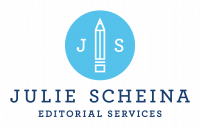I love to read about other people’s creative routines. Sometimes I hear about a new app I’d like to try (and inevitably send to the app graveyard); sometimes I learn about a new book or podcast or notebook; sometimes I wonder whether I, too, should get up at 4 am (the answer is always, definitively, no). Regardless of whether I learn any concrete tips or tools, there’s something enticing about hearing exactly how people I admire actually achieve the work that made me admire them in the first place.
Chances are you’ve read some of these articles, too. If you have the same goals as the routine-sharer—maybe you’re a writer reading about another writer’s routine—it can be hard not to compare their habits with yours. Maybe I need to change my schedule, try this retreat, or use this internet-free typewriter. Could that be the secret?
But even when I’m copying brain-boosting smoothie recipes or thinking about which pen to buy next, I know that there isn’t a single best, easiest, fastest, Instagram-ready routine for achieving creative genius. Still, I think that’s one of the reasons I enjoy reading about others’ routines; beyond the excitement of trying new things, it’s reassuring to know that there are as many creative habits as there are creative people.
If you’re a writer, this means that there are as many ways to write a book as there are books to be written—and your writing process doesn’t have to work for anyone except you. Even if you don’t have a set routine or if your ideal routine isn’t always possible, it’s helpful to know what practices can make writing feel easier for you. For example, while some authors like to write every day, others work best when they don’t adhere to a strict schedule. If you’re in the latter group, you might start to feel frustrated or like a failure if you try to force yourself into a strict daily writing habit.
On the other hand, let’s say you have a deadline that requires you to write every day, even though you know that you work best when you have more breathing room. You might be able to figure out ways to make the schedule more manageable—such as writing in short sprints with breaks in between, scheduling longer writing sessions so that you can take days off, or asking if there’s room for an extension. Sometimes just acknowledging that you are working outside your comfort zone makes it easier to give yourself grace on tough days.
If you’re still exploring the creative routines that work best for you, below are some questions that might help. As with the above example, the goal is not to put so many limitations on when, where, and how you can write that it becomes nearly impossible, but to be able to make adjustments to make writing easier for yourself when necessary.
Creative routine questions to consider:
- Do you like to write every day, or do you prefer a more relaxed schedule?
- How long is your ideal writing session? How frequently do you like to take breaks?
- What time of day do you usually find it easiest to write?
- Do you typically start with an outline or dive straight into a story?
- What tools do you like to use when you are brainstorming, writing, or revising—pen and paper, voice notes, a laptop or desktop, Word, Google Docs, Scrivener, etc.?
- Do you like to focus on a single project at a time, or do you tend to have multiple projects in various stages at any given point?
- Do you prefer to write in silence, with music, or with other background noises?
- What does your physical writing space look like? Do you most often write at a desk, on the couch, in bed, near a window, by a bulletin board, etc.?
- Do you like to write alone, or do you prefer to be around others in a coffee shop, library, or office?
- Do you tend to set specific word count or other goals for your writing sessions? If so, does tracking these goals on a calendar, spreadsheet, or journal motivate you?
- Do you like to share your writing goals and progress with someone else for encouragement and accountability, or do you prefer to wait until your draft is ready to share?
- Are there specific drinks or foods that help you focus during a writing session?
- Do you use any programs, apps, or other tools to help you avoid distractions?
- How do you start most of your writing sessions? Do you dive right in, refer to your notes, reread what you wrote most recently, read a page of a book that you admire, or do something else?
I’d love to hear what works for you and if I missed anything in the above list. In next week’s letter, I’ll share some ideas for what to do when you’re struggling with your existing creative routine.
Your Editor Friend,
Julie
